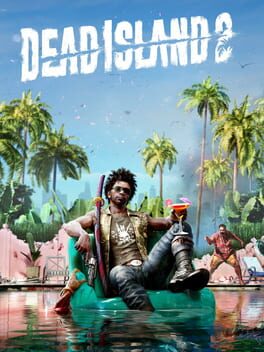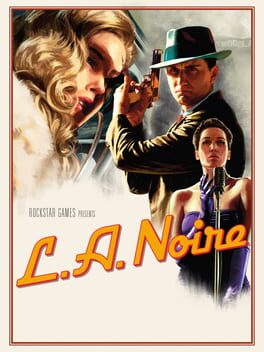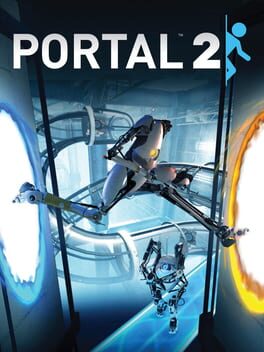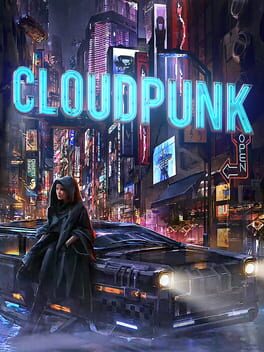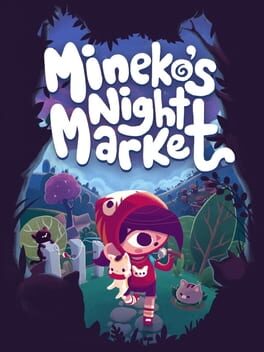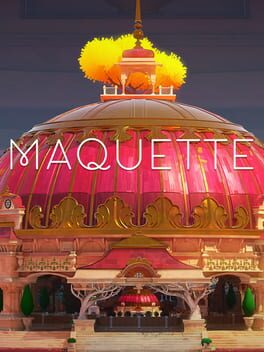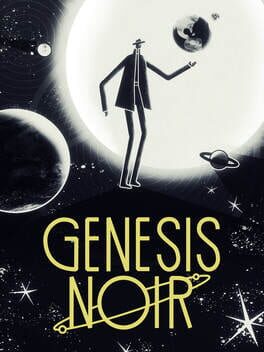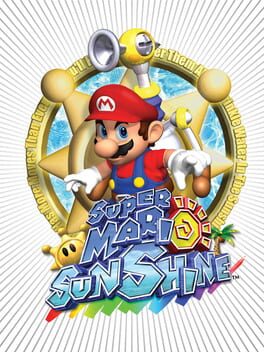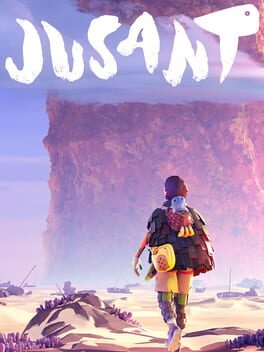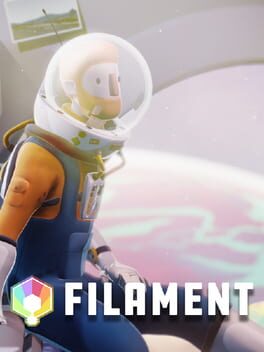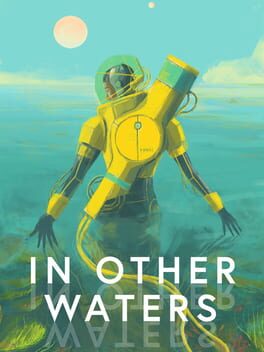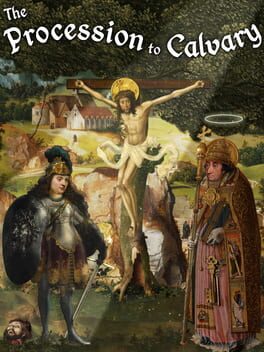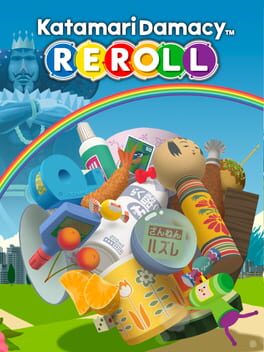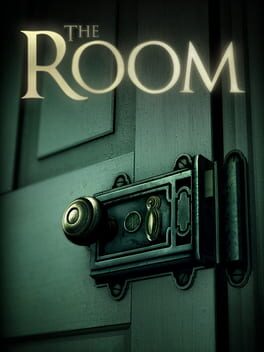tim_theuknown
BACKER
2023
What can I say: I had a blast. It was my game of March and even if it is loaded with flaws, Dead Island 2 just was another perfect example of „the right game at the right time“.
First of all: Dead Island 2 entitles itself completely to explicity in terms of blood, splatter and flying body parts. So if you are not into extended violence in games, you are wrong here.
After a failed escape from yet another zombie-apocalypse taking place in Hell-A (renamed Los Angeles) and the miraculous survival of a plane crash, we can choose from a cast of six slayers with a different set of stats before jumping into our gore-drenched adventure. I chose Dani, a badass woman, which turned out to be a brilliant choice, as her irish crudeness, just hit the right tone of what I was hoping for playing this game.
The main attraction of DI2 is the combat. It is clear, that Dambaster Studios wanted to make the zombie-slaughtering fun and diverse and I can only say, they succeed. We can choose from a wide variety of melee weapons ranging from pick axes to crowbars, machetes to bo-sticks, all which we can modify with stat-boots or elemental damage. And this crafting system is important, as where are constantly collecting crafting elements to repair or upgrade our gear. And here the two biggest flaws show up: the crafting and the loot-system, both which go hand-in-hand. Or to be more precise: fail to.
DI2 decided to go for quantity instead of quality in terms of weaponry. You can find a countless number of weapons in the game, either while exploring abandoned mansions, the dark sewers of LA or simply by popping up undead corpses as the zombies seem to enjoy sword-swallowing as much as hunting for brains. This weapon inflation feels like a mixture of Diablo, where you are always on the hunt for a better weapon to drop and Breath of the Wild, where you don’t get used to a certain weapon, as wears off over time and breaks eventually. And for me, this system is a two doubled-edged sword, as it motivates me, to try out different weapons and synergies, but it reduces my actual engagement in combat, as I quickly loose track of my favorite weapons. Important note: In DI2, even if your weapon breaks, you can always repair it at a workbench, so it can not vanish forever. You can actually find a few legendary items, which own unique perks and abilities, but they appear so late in the game, that they can’t show their full potential.
The difficulty feels very unbalanced. In the first third, you need to get used to the melee, but after about 10 hours, it gets more and more difficult for you to die in this game. And even if you do, it has NO consequences, as you just spawn seconds before you died, without losing either equipment or life-time. It avoids frustration, but it works against the promising skill system, which is based on skill cards, you earn for finishing quests or find while exploring L.A. They unlock powerful abilities and are completely flexible in use, which results in a refreshing alternative to the often stale and rigid skill-tree system. But I did not make extensive use of this system, as I never felt the urgency or need to do it, due to the easy difficulty, especially in the „end-game“.
The enemy variety is pretty limited too. Even if they sprinkle in new so-called apex variation until the very end, these are mostly just recycled, re-named or elemental mutated versions of already known species in the zombie-universe.
To sum it up, you could say, you can put in the same amount of brain-function into playing the game as the zombies do and still get through it.
So why did this game made me having so much fun then, if it sounds so one-dimensional and generic? Because it is a game, where you leave your brain at the counter, kick in the doors and jump into such a rush of blood, that you totally forget about time and space in front of the screen. DI2 is a game, that embraces the flow. The setting of quirky, over-the-top and sunburnt L.A, the set of characters consisting of alcoholic, self-absorbed surfer-dudes and actresses and the flat and fore-seeable plot and humor merged into a joy-inducing experience. It clearly differs from its closest „competitor“ Dying Light, which is miles ahead in movement, but feels heavy, serious and slow-paced on the narrative side of things. DI2 is light, shiny, stylish, superficial and goofy and for me, these attributes are all an advantage, if you want to have a good time.
It’s a comfort game through and through and it's locations and mechanics reminded me of the Tony Hawk-series, a series, in which you can escape, loose yourself in and hit a few high-scores - or rage-quit, because your combo breaks seconds before nailing it in your 280th try, as I did a couple of times in Underground 2. You can have a ton of fun with a solid set of skill and it is definitely no game, which you have to master entirely to make you feel powerful. In DI2 you feel powerful from the get-go.
Plus: The soundtrack is undeniably a banger supporting the sense of flow and the sound design is both crisp and splashy ensuring this hack-and-slay adventure its triple AAA-quality.
I can understand, if you feel repellent by this game, either by its excessive violent nature or it’s flat storyline. But I had a constant smile on my face, while crushing skulls and kneecaps. And I personally feel very happy for Dambuster, that they delivered on the heavy legacy and hype this game produced way back after it’s announcement in 2014 (!).
First of all: Dead Island 2 entitles itself completely to explicity in terms of blood, splatter and flying body parts. So if you are not into extended violence in games, you are wrong here.
After a failed escape from yet another zombie-apocalypse taking place in Hell-A (renamed Los Angeles) and the miraculous survival of a plane crash, we can choose from a cast of six slayers with a different set of stats before jumping into our gore-drenched adventure. I chose Dani, a badass woman, which turned out to be a brilliant choice, as her irish crudeness, just hit the right tone of what I was hoping for playing this game.
The main attraction of DI2 is the combat. It is clear, that Dambaster Studios wanted to make the zombie-slaughtering fun and diverse and I can only say, they succeed. We can choose from a wide variety of melee weapons ranging from pick axes to crowbars, machetes to bo-sticks, all which we can modify with stat-boots or elemental damage. And this crafting system is important, as where are constantly collecting crafting elements to repair or upgrade our gear. And here the two biggest flaws show up: the crafting and the loot-system, both which go hand-in-hand. Or to be more precise: fail to.
DI2 decided to go for quantity instead of quality in terms of weaponry. You can find a countless number of weapons in the game, either while exploring abandoned mansions, the dark sewers of LA or simply by popping up undead corpses as the zombies seem to enjoy sword-swallowing as much as hunting for brains. This weapon inflation feels like a mixture of Diablo, where you are always on the hunt for a better weapon to drop and Breath of the Wild, where you don’t get used to a certain weapon, as wears off over time and breaks eventually. And for me, this system is a two doubled-edged sword, as it motivates me, to try out different weapons and synergies, but it reduces my actual engagement in combat, as I quickly loose track of my favorite weapons. Important note: In DI2, even if your weapon breaks, you can always repair it at a workbench, so it can not vanish forever. You can actually find a few legendary items, which own unique perks and abilities, but they appear so late in the game, that they can’t show their full potential.
The difficulty feels very unbalanced. In the first third, you need to get used to the melee, but after about 10 hours, it gets more and more difficult for you to die in this game. And even if you do, it has NO consequences, as you just spawn seconds before you died, without losing either equipment or life-time. It avoids frustration, but it works against the promising skill system, which is based on skill cards, you earn for finishing quests or find while exploring L.A. They unlock powerful abilities and are completely flexible in use, which results in a refreshing alternative to the often stale and rigid skill-tree system. But I did not make extensive use of this system, as I never felt the urgency or need to do it, due to the easy difficulty, especially in the „end-game“.
The enemy variety is pretty limited too. Even if they sprinkle in new so-called apex variation until the very end, these are mostly just recycled, re-named or elemental mutated versions of already known species in the zombie-universe.
To sum it up, you could say, you can put in the same amount of brain-function into playing the game as the zombies do and still get through it.
So why did this game made me having so much fun then, if it sounds so one-dimensional and generic? Because it is a game, where you leave your brain at the counter, kick in the doors and jump into such a rush of blood, that you totally forget about time and space in front of the screen. DI2 is a game, that embraces the flow. The setting of quirky, over-the-top and sunburnt L.A, the set of characters consisting of alcoholic, self-absorbed surfer-dudes and actresses and the flat and fore-seeable plot and humor merged into a joy-inducing experience. It clearly differs from its closest „competitor“ Dying Light, which is miles ahead in movement, but feels heavy, serious and slow-paced on the narrative side of things. DI2 is light, shiny, stylish, superficial and goofy and for me, these attributes are all an advantage, if you want to have a good time.
It’s a comfort game through and through and it's locations and mechanics reminded me of the Tony Hawk-series, a series, in which you can escape, loose yourself in and hit a few high-scores - or rage-quit, because your combo breaks seconds before nailing it in your 280th try, as I did a couple of times in Underground 2. You can have a ton of fun with a solid set of skill and it is definitely no game, which you have to master entirely to make you feel powerful. In DI2 you feel powerful from the get-go.
Plus: The soundtrack is undeniably a banger supporting the sense of flow and the sound design is both crisp and splashy ensuring this hack-and-slay adventure its triple AAA-quality.
I can understand, if you feel repellent by this game, either by its excessive violent nature or it’s flat storyline. But I had a constant smile on my face, while crushing skulls and kneecaps. And I personally feel very happy for Dambuster, that they delivered on the heavy legacy and hype this game produced way back after it’s announcement in 2014 (!).
2017
12 years ago, I LOVED this game.
12 years later, as I anxiously revisit this detective-adventure game, I struggle badly to pinpoint anything positive about the game, because story- and gameplaywise, it aged very, very poorly.
You play as Cole Phelps a Marine Corps lieutenant, just returning from the Second World War, so we are in the late 40s, a time-frame very rarely picked. Our goal is to climb up the career ladder at the LAPD (Los Angeles Police Department) starting at the patrol service. Even if this environment is already suggesting another Hero’s Journey, this premise COULD have led to an interesting story. But it just did not deliver.
L.A. Noire is a power fantasy through and through. You speak the language of violence and war, screaming at suspects, pointing a gun at them or even shooting them in the back as they are running away from you. The developers at Rockstar are not well known for very sensitive or self-reflexive characters or stories, but with L.A. Noire they reached their pinnacle of ignorance. This game is dripping of problematic tropes: It is full of antisemitism, racism, sexism and unconcealed patriotism. And it is not only the „bad“ guys, who embody this way of thinking, it is you and the structure of police, that is based on violence, discrimination and corruption. It hurts to the bone to get to a crime scene over and over again, to see another femicide, or a raped body or a beaten up immigrant. Most of the cases are build like that. Yes, I can imagine the streets of L.A. in the late 40s, were not the safest place for liberal women or people of color, but to use this „historical truth“, to rebuild and reenact this brutal way of interacting is just not my type.
The L.A. we drive through is a vivid place, atmospherical and you can really feel the will to „build something“, but besides the feel of it, the glimpse, you just can’t do anything in this world - besides a bit of sightseeing. You are limited to your duty, driving from crime scene to crime scene, cutting blocks and avoid another car crash, due to the whacky car controls. The intention is clear, that Rockstar did not want to create another open-world gangster-adventure but quite the opposite. And this would be understandable, IF the gameplay of being a cop thriving for justice and recognition would be interesting and thrilling. But it simply isn’t.
The gameplay loop is boring and hilariously linear. You arrive at a crime scene, investigating it, searching for clues or evidence, waiting for the fulfilling melody to signal you the completion of the scene. Sidenote: This melody is the only thing in the game, that led to a warm nostalgic feeling in my playthrough. After that, you interrogate a witness and this part was sold as the main attraction back in the day with ground-breaking facial motion capture, making it easy to immediately recognize a liar. But this gimmick is just dated and the expressions are not that clearly readable, leading to frustration or the feel of a multiple-choice test. Because the other two options besides accusing someone, are to play the „good cop“ or the the „bad cop“. This means either calmly assume someone is lying or openly yelling or threating them, how they will rod in jail, if they are not cooperating. Then you drive to the next location, either searching for clues, repeating the next inhuman interrogation or chasing a suspect either by foot or by car.
The investigation part is the „best“ as you just shut up and try to do your job for a moment, like you should. But this promising mechanic is just torn down, by the incomprehensible need for action, spectacle and heroism, which leads to a dumb, rail-roaded and tedious experience.
In some cases, you will find newspapers, reporting about the psychologist Dr. Harlan Fontaine, a shady man willing to cure all men from their post-war traumata, a story told in little cut-scenes. The same happens to the backstory of Cole, as we experience little flashbacks of his time in war. These parts are the most promising and intriguing, as we get a glimpse of this collective trauma a war can cause. But the result of this trauma is displayed exclusively in beating your wife, becoming a murderer, an alcoholic or being abused by a narcissistic psychologist.
After replaying eleven cases, I have heard and seen enough. A part of me is sad about the failed replay of one of my favorite games. As a teen, I played this with my sister and I remember, that we enjoyed it. But I grew up and the game did not. And that is why the other part of me is grateful to went through this again. To realize that this type of game and especially the content and values it transfers, does not represent my understanding of the world nor a compelling character, I want to embody. And that does not imply, I only want to play as successful, soft and sensitive characters, which try to „make the world a better place“. Take Disco Elysium as a great example of a game that did it just right: A struggling cop, unable to remember his own name, known as a loser, a tramp, an asshole, but someone who is trying, or to be more accurate: a character thrown into a game that gives you freedom of choice and a feel of consequences and not only the outdated repetition of the binary idea of good and evil.
12 years later, as I anxiously revisit this detective-adventure game, I struggle badly to pinpoint anything positive about the game, because story- and gameplaywise, it aged very, very poorly.
You play as Cole Phelps a Marine Corps lieutenant, just returning from the Second World War, so we are in the late 40s, a time-frame very rarely picked. Our goal is to climb up the career ladder at the LAPD (Los Angeles Police Department) starting at the patrol service. Even if this environment is already suggesting another Hero’s Journey, this premise COULD have led to an interesting story. But it just did not deliver.
L.A. Noire is a power fantasy through and through. You speak the language of violence and war, screaming at suspects, pointing a gun at them or even shooting them in the back as they are running away from you. The developers at Rockstar are not well known for very sensitive or self-reflexive characters or stories, but with L.A. Noire they reached their pinnacle of ignorance. This game is dripping of problematic tropes: It is full of antisemitism, racism, sexism and unconcealed patriotism. And it is not only the „bad“ guys, who embody this way of thinking, it is you and the structure of police, that is based on violence, discrimination and corruption. It hurts to the bone to get to a crime scene over and over again, to see another femicide, or a raped body or a beaten up immigrant. Most of the cases are build like that. Yes, I can imagine the streets of L.A. in the late 40s, were not the safest place for liberal women or people of color, but to use this „historical truth“, to rebuild and reenact this brutal way of interacting is just not my type.
The L.A. we drive through is a vivid place, atmospherical and you can really feel the will to „build something“, but besides the feel of it, the glimpse, you just can’t do anything in this world - besides a bit of sightseeing. You are limited to your duty, driving from crime scene to crime scene, cutting blocks and avoid another car crash, due to the whacky car controls. The intention is clear, that Rockstar did not want to create another open-world gangster-adventure but quite the opposite. And this would be understandable, IF the gameplay of being a cop thriving for justice and recognition would be interesting and thrilling. But it simply isn’t.
The gameplay loop is boring and hilariously linear. You arrive at a crime scene, investigating it, searching for clues or evidence, waiting for the fulfilling melody to signal you the completion of the scene. Sidenote: This melody is the only thing in the game, that led to a warm nostalgic feeling in my playthrough. After that, you interrogate a witness and this part was sold as the main attraction back in the day with ground-breaking facial motion capture, making it easy to immediately recognize a liar. But this gimmick is just dated and the expressions are not that clearly readable, leading to frustration or the feel of a multiple-choice test. Because the other two options besides accusing someone, are to play the „good cop“ or the the „bad cop“. This means either calmly assume someone is lying or openly yelling or threating them, how they will rod in jail, if they are not cooperating. Then you drive to the next location, either searching for clues, repeating the next inhuman interrogation or chasing a suspect either by foot or by car.
The investigation part is the „best“ as you just shut up and try to do your job for a moment, like you should. But this promising mechanic is just torn down, by the incomprehensible need for action, spectacle and heroism, which leads to a dumb, rail-roaded and tedious experience.
In some cases, you will find newspapers, reporting about the psychologist Dr. Harlan Fontaine, a shady man willing to cure all men from their post-war traumata, a story told in little cut-scenes. The same happens to the backstory of Cole, as we experience little flashbacks of his time in war. These parts are the most promising and intriguing, as we get a glimpse of this collective trauma a war can cause. But the result of this trauma is displayed exclusively in beating your wife, becoming a murderer, an alcoholic or being abused by a narcissistic psychologist.
After replaying eleven cases, I have heard and seen enough. A part of me is sad about the failed replay of one of my favorite games. As a teen, I played this with my sister and I remember, that we enjoyed it. But I grew up and the game did not. And that is why the other part of me is grateful to went through this again. To realize that this type of game and especially the content and values it transfers, does not represent my understanding of the world nor a compelling character, I want to embody. And that does not imply, I only want to play as successful, soft and sensitive characters, which try to „make the world a better place“. Take Disco Elysium as a great example of a game that did it just right: A struggling cop, unable to remember his own name, known as a loser, a tramp, an asshole, but someone who is trying, or to be more accurate: a character thrown into a game that gives you freedom of choice and a feel of consequences and not only the outdated repetition of the binary idea of good and evil.
2011
I recently rediscovered my deep love for first person puzzle games and played through a bunch of them (partially again), like Superliminal, Viewfinder or Stanley Parable, before revisiting the one-and-only Portal 2. Last year I played Portal 1 and after replaying part two, part one feels like a toddler to me, especially in terms of complexity, content and puzzle variety. Expanding the repertoire of elements with the gels and transportation beams just exploded the set of possibilities and Valve used their potential.
But in my mind, what really sets Portal 2 apart and makes it feel so fun and outstanding, is it’s sense of verticality. You have to make use of your environment in every possible directions. And you know that feeling in your gut, when you lift off in a rollercoaster, just for a second or two? That’s the excitement you feel while jumping of a cliff in Lonely Mountains Downhill, that’s the rush you feel in Neon White and that’s the feeling that Portal 2 use as an attraction to keep going. And it is not just a gimmick, the full-dimensional traversal IS the mean guideline in level and puzzle design. It is a brilliant example of how few things a game needs to succeed, to be creative, and hit the sweet spot in-between guiding and experimenting by making use of the lateral thinking approach.
I noticed one small thing, while replaying: There is a lot of talking in Portal 2, as you are accompanied or supervised nearly through your entire journey. The writing is bursting with self-reflective irony and meta-jokes, yet it is simply A LOT. But that is the only real „flaw“ I could name and this is no sugarcoating.
Portal 2 is one of those rare, what I would call cinematic puzzlers, with lots of effects and drama and meta-humor, but yet feels so humble, simplistic and straight forward. It’s the perfect sandbox, where Valve only decided to pick the best parts and merged it to the iconic and timeless game, that even 13 years after it’s release, is unique and joyful.
But in my mind, what really sets Portal 2 apart and makes it feel so fun and outstanding, is it’s sense of verticality. You have to make use of your environment in every possible directions. And you know that feeling in your gut, when you lift off in a rollercoaster, just for a second or two? That’s the excitement you feel while jumping of a cliff in Lonely Mountains Downhill, that’s the rush you feel in Neon White and that’s the feeling that Portal 2 use as an attraction to keep going. And it is not just a gimmick, the full-dimensional traversal IS the mean guideline in level and puzzle design. It is a brilliant example of how few things a game needs to succeed, to be creative, and hit the sweet spot in-between guiding and experimenting by making use of the lateral thinking approach.
I noticed one small thing, while replaying: There is a lot of talking in Portal 2, as you are accompanied or supervised nearly through your entire journey. The writing is bursting with self-reflective irony and meta-jokes, yet it is simply A LOT. But that is the only real „flaw“ I could name and this is no sugarcoating.
Portal 2 is one of those rare, what I would call cinematic puzzlers, with lots of effects and drama and meta-humor, but yet feels so humble, simplistic and straight forward. It’s the perfect sandbox, where Valve only decided to pick the best parts and merged it to the iconic and timeless game, that even 13 years after it’s release, is unique and joyful.
2020
Cloudpunk caught me by surprise. After being close to put it down in the first hours, I surpassed the point of being intrigued, by how things are going to shape up for us. As a delivery-driver, we are hovering through the cyberpunk-metropolis of Nivalis trying to make a living, getting caught up in criminal activities and ticking boxes. The gameplay loop is plain and simple - pick up package, drive to location and deliver. But the conversations with our dog automata Camus spice up the long, repetitive rides. The encounters are meaningful and the writing is surprisingly good. Even the choice of an edgy voxel-look does not crash with the consistent atmosphere of never-ending night and rain. A game worth checking out, especially if you want to get immersed in a neon-enlightened and laidback adventure.
What can I say, but: Cats don't safe a game from being boring. The writing was surprisingly sharp, ironic and funny for that kind of game. Yet it did not safe the game from feeling hollow and superficial. Throwing you into the story of moving to a foreign forest village with your dad, I found it impossible to connect with the other characters. The art-style is handsome and cute and reminded me of the puzzle adventure Carto. But seriously, this is a bummer through and through, that I had to jump off.
2021
In Maquette, a promising concept is stretched into eternal, multi-layered stupidity.
In defense of this game, I was not in my most patient shape while playing this game. But yet, it really tests you throughout the full playthrough. The main focus is to solve recursive puzzles, by experimenting with changing the size and the original use of objects, which sounds cool on paper, but was not well executed.
I felt stupid, while playing the game and that is a feeling you should strictly try avoiding to invoke your players. I found myself cursing over and over again about plot, mechanics and movement, because the console controls are laggy and tedious, the puzzle solutions are mostly counter-intuitive and the plot is the pinnacle of head-scratching, lazy storytelling.
The underlying story, told in text fragments and audio snippets, is a pain in the ass. It retells the dysfunctional love story of Kenzie and Michael, which are complete idiots, when it comes to communicating properly and at least try to live in a healthy, respectful and open minded relationship. Their interpersonal inability is just painful to watch and listen to and to be honest, I am tired, bored and annoyed to get served with these copy-and-paste, expired, so-called love stories, that still try to manifest that this is the circle of life and love is equal to pain and ignorance. Either grow out of your ego-mania or go to (couple) therapy!
On the one hand, I feel sorry, to be this rude, but on the other, this game made me feel gut wrenching miserable and repelled me from minute one till the very end.
Why do I still rate this game a 2.5 or even finished it, when it hurt so much? One thing that really stood out and frequently saved me from quitting, is the splendid selection of tunes, that really hit the right note every time. If you have a weakness for kitschy indie, soft-rock music, the tracks will produce a regular dose of goosebumps. They finally made my head nod in emotional response and not in endless desperation.
In defense of this game, I was not in my most patient shape while playing this game. But yet, it really tests you throughout the full playthrough. The main focus is to solve recursive puzzles, by experimenting with changing the size and the original use of objects, which sounds cool on paper, but was not well executed.
I felt stupid, while playing the game and that is a feeling you should strictly try avoiding to invoke your players. I found myself cursing over and over again about plot, mechanics and movement, because the console controls are laggy and tedious, the puzzle solutions are mostly counter-intuitive and the plot is the pinnacle of head-scratching, lazy storytelling.
The underlying story, told in text fragments and audio snippets, is a pain in the ass. It retells the dysfunctional love story of Kenzie and Michael, which are complete idiots, when it comes to communicating properly and at least try to live in a healthy, respectful and open minded relationship. Their interpersonal inability is just painful to watch and listen to and to be honest, I am tired, bored and annoyed to get served with these copy-and-paste, expired, so-called love stories, that still try to manifest that this is the circle of life and love is equal to pain and ignorance. Either grow out of your ego-mania or go to (couple) therapy!
On the one hand, I feel sorry, to be this rude, but on the other, this game made me feel gut wrenching miserable and repelled me from minute one till the very end.
Why do I still rate this game a 2.5 or even finished it, when it hurt so much? One thing that really stood out and frequently saved me from quitting, is the splendid selection of tunes, that really hit the right note every time. If you have a weakness for kitschy indie, soft-rock music, the tracks will produce a regular dose of goosebumps. They finally made my head nod in emotional response and not in endless desperation.
2021
I had hoped to love this game. The art style looks gorgeous and the visuals are stunning and unique, but as a game, it is simply clumsy, frustrating and not easy to read. It is rebellious and edgy, with its noire-style and free-jazz soundtrack, but the effort on the gameplay-side is just too limited and inconsistent so be remembered. Honestly a wonder, that I finished it.
2002
Super Mario Sunshine might be one of the hardest souls-likes ever made.
After I had such a blast with Super Mario Odyssey, for a long time I was thinking to fill my gaps in the 3D-Mario space. Now I finally got my hands on the 3D-All Stars Selection and I wanted to slowly work my way through it. I started with Sunshine, which I have a really strong connection to and which is the only one of the three, I played so far. And I was excited and frightened at the same time to explore the dark and shiny spots of that connection.
And nostalgia hit hard. When I booted up the game and listend to the first notes of the Isle-Delfino theme I felt right teleported to the 8-10year old me, sitting in front of the GameCube with shrine-shiny eyes ready to roll. But after landing with Peach on the Island and the game starting to unfold, the trauma kicked back in. You see, when I scrambled through my memory, I did not found any prove of finishing this game. I remember pouring tons of hours into it, only to fight my way through a few levels. I remember certain activities like throwing fruit at the islanders, mud looking like chocolate spread across the island and a level with a huge rollercoaster park. What I do remember for certain is the cocktail of feelings always oscillating in-between fun and frustration.
And this second word starting with F came back already on the airstrip 5 minutes into the game. The camera (non-)movement in Sunshine is one of the worst I have ever seen and this game is a 3D plattformer, so you have to know where you are heading, but this is just not the case. The camera feels like an untrained puppy pulling the leash into the opposite direction of where you want to go. And the frustration doubles with the knowledge, that I am playing this game as a remastered version. A version in which Nintendo is yet again so lazy and only upscales the graphics of the vanilla-version of the game and does not touch a single thing aspect - even re-using the GameCube button layout, lol. This game-design idleness haunted me through my entire short re-visit. It sucks out the fun, nearly completely. The fun of being accompanied by one of the most iconic non-human companions of gaming history: FLUDD. FLUDD is a rechargeable water-based tool, that can be used to spray enemies and goop, hover or launch through the air, and dash to high speeds. It is the main mechanical attraction and it is so cool. Or it should feel like it. But the whacky and inaccurate controls, the movements latency and the stubborn camera throw you off, minute by minute, jump by jump. And this is what weights the heaviest: Due to the inconsistent controls you are unable to grow in skill, to overcome obstacles and to feel real accomplishment. And this feeling of literally „not being in full control“ is bad for nearly every game experience. I was surprised how masochistic the levels felt, especially the platforming sections, where Shadow Mario steals FLUDD and you are left with only your jumping „skills“. And this type of design is not a relict of old times, as these levels recur in Odyssey and throughout the whole Super Mario-Series, but I could not help myself, but to feel robbed and put on trial - feeling like Mario being put on trial, accused of being a graffiti artist, haha. I was only able to finish the first major level (Monte Bianco), collecting 9 of 120 shine sprites. And this left me and collector-heart heart-broken. But yet, I simply could not force myself to collect the small moments of joy and embrace them, as they share the destiny of the shines being spread across the island. I love the sound, the atmosphere and the locations of this title, but for the sake of my mental health, I have to pull the plug. For now. A few days ago, I was sure to add this game to the „abondaned“-section and leave it for good. But I can not help, but to wonder, what comes next, what lies beneath all the pain? Am I the one being to weak? That is why I shelf this game and see if there will come a time, when I am ready to fight my way through. But first I am looking forward to play Galaxy and 64 without the constant whisper of nostalgia in my ear.
After I had such a blast with Super Mario Odyssey, for a long time I was thinking to fill my gaps in the 3D-Mario space. Now I finally got my hands on the 3D-All Stars Selection and I wanted to slowly work my way through it. I started with Sunshine, which I have a really strong connection to and which is the only one of the three, I played so far. And I was excited and frightened at the same time to explore the dark and shiny spots of that connection.
And nostalgia hit hard. When I booted up the game and listend to the first notes of the Isle-Delfino theme I felt right teleported to the 8-10year old me, sitting in front of the GameCube with shrine-shiny eyes ready to roll. But after landing with Peach on the Island and the game starting to unfold, the trauma kicked back in. You see, when I scrambled through my memory, I did not found any prove of finishing this game. I remember pouring tons of hours into it, only to fight my way through a few levels. I remember certain activities like throwing fruit at the islanders, mud looking like chocolate spread across the island and a level with a huge rollercoaster park. What I do remember for certain is the cocktail of feelings always oscillating in-between fun and frustration.
And this second word starting with F came back already on the airstrip 5 minutes into the game. The camera (non-)movement in Sunshine is one of the worst I have ever seen and this game is a 3D plattformer, so you have to know where you are heading, but this is just not the case. The camera feels like an untrained puppy pulling the leash into the opposite direction of where you want to go. And the frustration doubles with the knowledge, that I am playing this game as a remastered version. A version in which Nintendo is yet again so lazy and only upscales the graphics of the vanilla-version of the game and does not touch a single thing aspect - even re-using the GameCube button layout, lol. This game-design idleness haunted me through my entire short re-visit. It sucks out the fun, nearly completely. The fun of being accompanied by one of the most iconic non-human companions of gaming history: FLUDD. FLUDD is a rechargeable water-based tool, that can be used to spray enemies and goop, hover or launch through the air, and dash to high speeds. It is the main mechanical attraction and it is so cool. Or it should feel like it. But the whacky and inaccurate controls, the movements latency and the stubborn camera throw you off, minute by minute, jump by jump. And this is what weights the heaviest: Due to the inconsistent controls you are unable to grow in skill, to overcome obstacles and to feel real accomplishment. And this feeling of literally „not being in full control“ is bad for nearly every game experience. I was surprised how masochistic the levels felt, especially the platforming sections, where Shadow Mario steals FLUDD and you are left with only your jumping „skills“. And this type of design is not a relict of old times, as these levels recur in Odyssey and throughout the whole Super Mario-Series, but I could not help myself, but to feel robbed and put on trial - feeling like Mario being put on trial, accused of being a graffiti artist, haha. I was only able to finish the first major level (Monte Bianco), collecting 9 of 120 shine sprites. And this left me and collector-heart heart-broken. But yet, I simply could not force myself to collect the small moments of joy and embrace them, as they share the destiny of the shines being spread across the island. I love the sound, the atmosphere and the locations of this title, but for the sake of my mental health, I have to pull the plug. For now. A few days ago, I was sure to add this game to the „abondaned“-section and leave it for good. But I can not help, but to wonder, what comes next, what lies beneath all the pain? Am I the one being to weak? That is why I shelf this game and see if there will come a time, when I am ready to fight my way through. But first I am looking forward to play Galaxy and 64 without the constant whisper of nostalgia in my ear.
I am a rookie concerning 2D-Super Mario titles, and yet, I was hoping for something like I felt playing through the marvelous Super Mario Odyssey: the sense of wonder. I could sense little sparks of it, but they vanished as fast, as the signature snapping-sound of the system, this game runs on.
You can’t deny that this game oozes of creativity. The new enemies are fun to face, the movement is slick and especially the musical levels make you giggle like a child. But especially in the first third, I could not help but wonder, how fast these levels end. At times they feel hilariously linear and like a chain of tutorial levels. Sometimes I thought, I was playing Before Your Eyes, because every time I blinked, I finished yet another course. That is a strength and a weakness at the same time, as the levels are snackable in size, but feel so easy to beat. And i was honestly confused, by the extended use of „filler“-levels, like the break-levels, the battle arenas or the riddle ones. Normally Nintendo is known for their holistic creativity, that wanders into every last digital corner of their games. In this one, they seemed lazy.
Yet, I finished 99% of the game, collecting all purple coins, wonder seeds and all flags. Don’t get me started on the last level, it is just incomprehensibly difficult. The badges are a cool feature, but not implemented too deeply. The elephant feels powerful - a bit overpowered even - the drill is cool, but I avoided Bubble Mario, as he felt sort of useless. The soundtrack is undeniably mesmerizing, playful and sets the pace for a wonderful adventure.
In the end, I made peace with the game. As I collected all the missing coins and wonder seeds before finishing up the „plot“, I found joy in the simplicity and clarity of design that Wonder prescribed itself too. I realized, my expectations were simply too high and the wish to squeeze the explorative nature of Odyssey into the two-dimensional space was plain and simply unfulfillable. It could have elaborated on it’s tools more, be more brave, cheeky and edgy and more importantly: be more memorable. The wonder flower levels felt like a psychedelic trip, that is funny and adrenaline invoking, once you are in, but fades away, as soon as it ends. What will stay for sure, is the memory of the cringy, cheesy, yet charming talking flowers.
You can’t deny that this game oozes of creativity. The new enemies are fun to face, the movement is slick and especially the musical levels make you giggle like a child. But especially in the first third, I could not help but wonder, how fast these levels end. At times they feel hilariously linear and like a chain of tutorial levels. Sometimes I thought, I was playing Before Your Eyes, because every time I blinked, I finished yet another course. That is a strength and a weakness at the same time, as the levels are snackable in size, but feel so easy to beat. And i was honestly confused, by the extended use of „filler“-levels, like the break-levels, the battle arenas or the riddle ones. Normally Nintendo is known for their holistic creativity, that wanders into every last digital corner of their games. In this one, they seemed lazy.
Yet, I finished 99% of the game, collecting all purple coins, wonder seeds and all flags. Don’t get me started on the last level, it is just incomprehensibly difficult. The badges are a cool feature, but not implemented too deeply. The elephant feels powerful - a bit overpowered even - the drill is cool, but I avoided Bubble Mario, as he felt sort of useless. The soundtrack is undeniably mesmerizing, playful and sets the pace for a wonderful adventure.
In the end, I made peace with the game. As I collected all the missing coins and wonder seeds before finishing up the „plot“, I found joy in the simplicity and clarity of design that Wonder prescribed itself too. I realized, my expectations were simply too high and the wish to squeeze the explorative nature of Odyssey into the two-dimensional space was plain and simply unfulfillable. It could have elaborated on it’s tools more, be more brave, cheeky and edgy and more importantly: be more memorable. The wonder flower levels felt like a psychedelic trip, that is funny and adrenaline invoking, once you are in, but fades away, as soon as it ends. What will stay for sure, is the memory of the cringy, cheesy, yet charming talking flowers.
2023
This game hits the right notes and pulls the right strings, even if you have to use your left hand to get a bit closer to reach the top of the tower.
Jusant enables you to climb. Climb like, we always dreamt to be able to climb in a video game without being a 1:1 climbing simulator. The mechanic is the hook, the safety rope, we tie to the wall and never fall. You can actually never fall nor die in Jusant, you are always safe, even if you are running out of stamina or being unable to hold tight. But this decision - for me - is a good one, as Jusant does not want to be a challenging or potentially frustrating game. It embraces a dynamic and flow-focused approach, which simply works.
The story and agency in this game derivers from the quest to find the missing water. The pillar-like structure, called The Tower, experienced a devastating drought, which lead to its full abandonment. On our journey upwards, we either find notes of former inhabitants of the rocky villages and trading outposts or we find dairy-fragments of another group of climbers, who were on the hunt for so-called „ballasts“, whale-like creatures, seemingly made of water.
Even with the fact that every human being has left due to the life-threatening conditions, Jusant nevers feels empty. This is based on the very vivid wildlife, which was able to adapt to this dry environment and the constant company of a little blob-like creature, we carry with us. The world seems credible and important, designed with love, care and desire.
Many people called this game a journey-like based on its absence of language, focusing on a cohesive experience and immersive atmosphere. I could agree, but I would ascribe Jusant a very own feeling to it. Whereas in your Journey-journey you never stop, in Jusant, I often was caught up in the beauty of this dying landscape, staring into the desert and feeling the relief of lacking my fear of heights in real life.
Unfortunately the game, through its entirety, fails to combine all the different climbing mechanics and balance them right. It chose the easiest path to approach, which results in a very trouble- and obstacle-free way up. You are faced with a few environmental challenges like sunlight or wind, but they are never overwhelming or challenging. But I can forgive this fact, because Jusant is a heart-type, not a brain-type game, it is emotional- and not skill-based.
Nevertheless it is far away from being a feel-good experience nor an affective, cry-inducing allegory of a climate-change endangered world outside of this game. It is special, well-crafted and paced, with a welcome absence of violence, a journey that sparks hope and will be remembered.
Jusant enables you to climb. Climb like, we always dreamt to be able to climb in a video game without being a 1:1 climbing simulator. The mechanic is the hook, the safety rope, we tie to the wall and never fall. You can actually never fall nor die in Jusant, you are always safe, even if you are running out of stamina or being unable to hold tight. But this decision - for me - is a good one, as Jusant does not want to be a challenging or potentially frustrating game. It embraces a dynamic and flow-focused approach, which simply works.
The story and agency in this game derivers from the quest to find the missing water. The pillar-like structure, called The Tower, experienced a devastating drought, which lead to its full abandonment. On our journey upwards, we either find notes of former inhabitants of the rocky villages and trading outposts or we find dairy-fragments of another group of climbers, who were on the hunt for so-called „ballasts“, whale-like creatures, seemingly made of water.
Even with the fact that every human being has left due to the life-threatening conditions, Jusant nevers feels empty. This is based on the very vivid wildlife, which was able to adapt to this dry environment and the constant company of a little blob-like creature, we carry with us. The world seems credible and important, designed with love, care and desire.
Many people called this game a journey-like based on its absence of language, focusing on a cohesive experience and immersive atmosphere. I could agree, but I would ascribe Jusant a very own feeling to it. Whereas in your Journey-journey you never stop, in Jusant, I often was caught up in the beauty of this dying landscape, staring into the desert and feeling the relief of lacking my fear of heights in real life.
Unfortunately the game, through its entirety, fails to combine all the different climbing mechanics and balance them right. It chose the easiest path to approach, which results in a very trouble- and obstacle-free way up. You are faced with a few environmental challenges like sunlight or wind, but they are never overwhelming or challenging. But I can forgive this fact, because Jusant is a heart-type, not a brain-type game, it is emotional- and not skill-based.
Nevertheless it is far away from being a feel-good experience nor an affective, cry-inducing allegory of a climate-change endangered world outside of this game. It is special, well-crafted and paced, with a welcome absence of violence, a journey that sparks hope and will be remembered.
2020
2020
Uniquess level of this game is sky-rocketing. Or should I say utterly below sea level? This game lets you dive into an underwater world to explore extraterrestrial life, but accidentally encounter a lonesome AI. Even with it's simple and relaxed single-screen gameplay, it succeeds in telling a tempting and mysterious story, that motivates you, to hold your breath just a little longer.
This games is build with passion, patience and silliness in mind. Based only on medieval and renaissance paintings this point and click adventure is a feast of goofiness. Following the quest of Bellona to kill Saint Peter and bring back war, we encounter several biblical figures and motives, entangled in quirky situations ranging from face palming stupid to meta-clever. Solo developer Joe Richardson is not shy, to break the fourth wall to make fun not only about the protagonist, but the developer and the player as well. The pretty flat and direct humor a la Monty Python meets a unique and elaborate art-style, which makes you shake your head more than once and if you look closely, is loaded with so many hidden references. Gameplaywise it is a basic point and click, with solid puzzles and some stretches of serious backtracking. The characters we meet are simultaneously tragic and silly and the music we are listining is on the edge of authentic and utterly nerve-racking. When you pick up this game, expect a self-referential black humored satire, which focuses on delivering a unique style to cover up a stupid plot and a basic gameplay experience. But man, this game will stick to your brain, I can guarantee!
This game is pure silliness mixed with a whole lot of enjoyment. You just can't stop growing your pile of stuff you are collecting. It's quirky and gamey and is still playable 14 years after its original release. Sometimes the time limit is set extremely strict, but yet it succeeds in being fair to beat level after level.
2012
